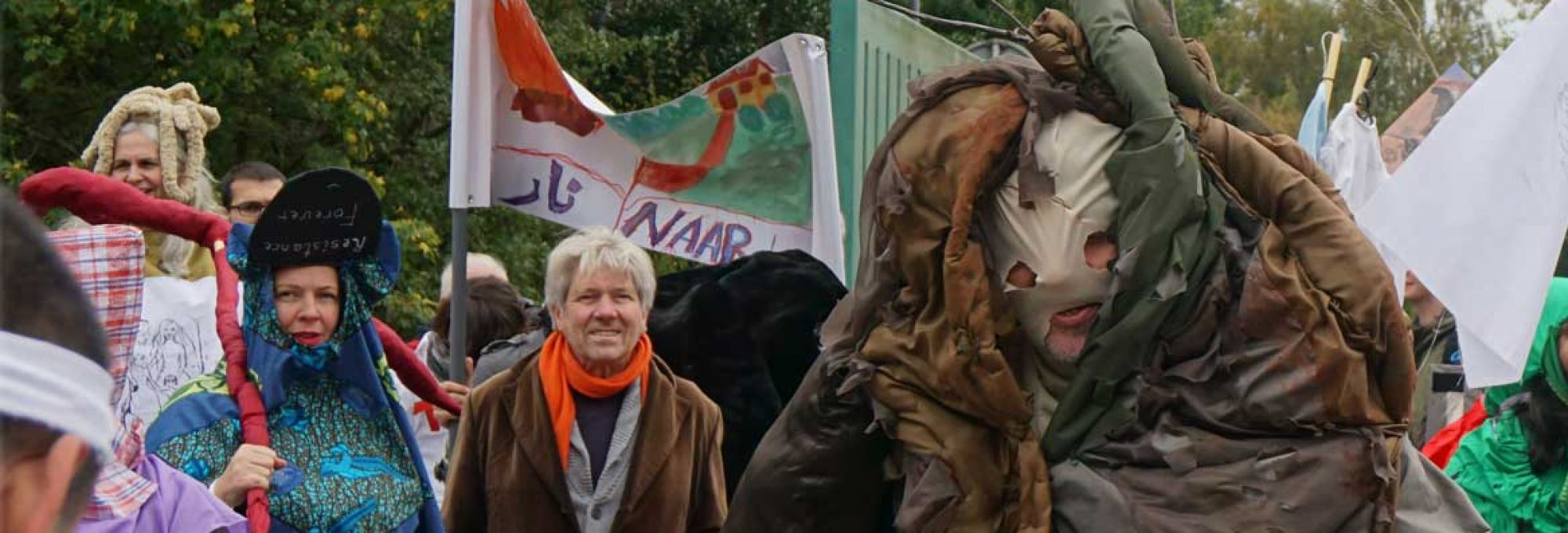To those who have no time to play, soloshow, Framer Framed, Amsterdam, NL, curated by Charles Esche (2022-23)
The idea to create this performance in the context of the long-term project Matras Platform came to me after the start of the war in Ukraine. Since 2012 I was busy developing the concept of a theatre for migrants, where professional and nonprofessional actors might blend their energies to create a performance together. During the pandemic, I came to realise the necessity to call for collaborators living here in Amsterdam, and after my first meeting with Khalid Jone from We Are Here (a refugee action collective), the title came: Matras Platform. It derived from our sessions of writing questions on mattresses left out on the streets, directed to the city as an open environment for exploring a new way of communication. We started to meet regularly at my studio, talking on different topics, developing trust and trying to understand what kind of performance we should produce which might unite us despite gender, status and experience differences.
But 24 February 2022 changed everything. Following the outbreak of the war, I proposed to read the tragedy Antigone written by Sophocles. The core Matras Platform group accepted it, and we agreed that I would write the script to then be debated and developed from meeting to meeting. The trust necessary in this process was facilitated by amazing Marianne Koeman. The war also brought an old friend again: I started to correspond with composer Vladimir Rannev and proposed him to write music to our performance, introducing him to my dream of combining singing dresses and live performance together. Through our communication, we developed the structure of this multimedia installation combining soft- and hardware programming with the synchronization of sound and light.
The choice to work with the classic play came largely as a result of thinking how to show the enormous gap between Europe and the rest of the world. Ancient Greek mythology is ruling the game here, penetrating our cultural environment with codes that only people who grew up with them can understand, leaving the newcomers outside the magic circle. Our sessions in studio became like a school of sharing and unlearning these codes together.
The first thing that struck me when I was reading Antigone in Russian was Antigone’s double attempt to bury her brother. My second thought was the realisation of the absence of enslaved people in the story, and another intriguing thing was the doubt of the sentry, who after capturing Antigone said, But here is what is very strange: I felt sadness coming over me,which showed his unsureness in what he had done.
After reading several versions of Antigone, I was inspired mostly by Bonnie Honig Antigone Interrupted, who interestingly speculates around the topic of the double burial and the role of Ismene, Antigone’s sister.1 In my script, I dramatized the preposition that the sisters did the heroic deed together, highlighting the topic of a sororal politics, feminist sisterhood and the problems with self-organisation among women. The doubt of the sentry is emphasised in the performance by splitting the character between the singing dress on the stage and a live performance by Shepherd Camara. The general structure of Antigone Update remains from the classic tragedy, but with a twist of protagonists who sing from the stage and a chorus who speaks from our times.2
